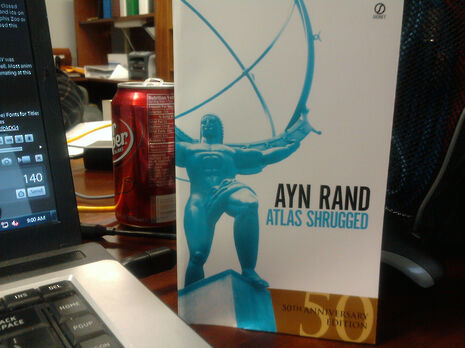Books I Lie and Say I’ve Read
It’s about more than just bluffing your way through supervisions

My friend Tabs tells me I have the most pretentious bookshelf she’s ever seen. Given my idea of a great time after a bop was to harp on for two hours that War and Peace was the best book ever written, she might have a point. But that doesn’t mean I’ve actually read the books. I know nothing about how Chekov’s angst relates to Sartrean existentialism, but I’ll certainly have a crack at convincing you I do. They’re important texts. That’s all I really know about them, and that’s all you know, too, so let’s pretend we know why and enjoy the intellectual prestige.
Paying attention to a book’s importance has made me the sort of hypocrite who says Henry Fielding’s Tom Jones is one of the funniest books ever written (it is), despite having only read half of it. I once wrote an essay on Flaubert arguing that Sentimental Education’s entire plot could be predicted from its first and last chapters, which might have been because that was all I’d read of it.
Laziness? Possibly. But if your essay deadline is tomorrow I’d say you’re better off cobbling together some lit crit, glancing at chunks of the text and arguing a ‘brave’ interpretation than forcing your way through all 500 pages in French. So you take a punt on a ‘new’ twist, and hope you can make it through your supervision. In the end, this got ridiculous: presented with a passage I was supposed to have read (but obviously hadn’t), I based a timed critical commentary, written in a furious panic, on a Sheryl Crow lyric. It got a first.
Lying for cultural credibility is one thing, but pretending I’ve read Proust only means I can parrot that some books are ‘significant’ without being able to make up my own mind. Last week marked the 50th anniversary of James Baldwin’s historic Union debate: Giovanni’s Room is said to be a landmark piece of LGB fiction, but I can’t know that unless I read it, even if I ‘know’ it’s important. What if I said “Ayn Rand’s fiction attempts to mask its melodrama in weak attempts at highfalutin philosophical discourse that belie naïve readings of Aristotle”? I could have got that from a cereal packet, for all you know. Ditto when I argued with a friend about Brave New World being a better book than 1984, when I hadn’t read the latter.
Does this matter? That it insults those who engage in the serious study of literature is irrelevant: more fool them for not spotting I didn’t have a clue. But if I can’t explain why we study novels like Sentimental Education, why did I bother with that essay? I know no more having written it. I know no more than someone who’s never heard of Flaubert at all. If knowing a book means grappling with its ideas and forming your own conclusion about its message, then I know very few books indeed.
Do I understand War and Peace? Not as much as I’d like. But, for the record, I did actually read it. Twice. Andrei makes it worth it every time.
 News / Night Climbers call for Cambridge to cut ties with Israel in new stunt15 April 2024
News / Night Climbers call for Cambridge to cut ties with Israel in new stunt15 April 2024 News / Cambridge University cancer hospital opposed by environmental agency12 April 2024
News / Cambridge University cancer hospital opposed by environmental agency12 April 2024 Features / Cambridge’s first Foundation Year students: where are they now?7 April 2024
Features / Cambridge’s first Foundation Year students: where are they now?7 April 2024 Film & TV / Dune: Part Two is a true epic for the ages11 April 2024
Film & TV / Dune: Part Two is a true epic for the ages11 April 2024 Comment / UK universities are sacrificing widening access for foreign fees11 April 2024
Comment / UK universities are sacrificing widening access for foreign fees11 April 2024



